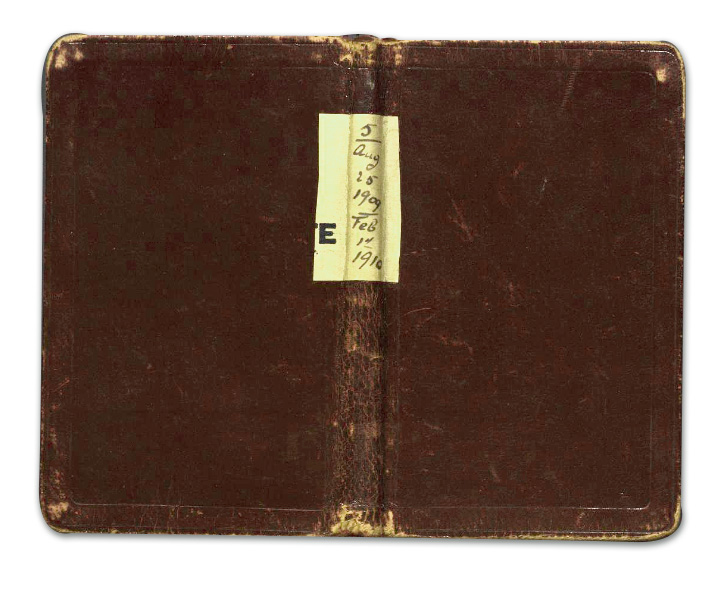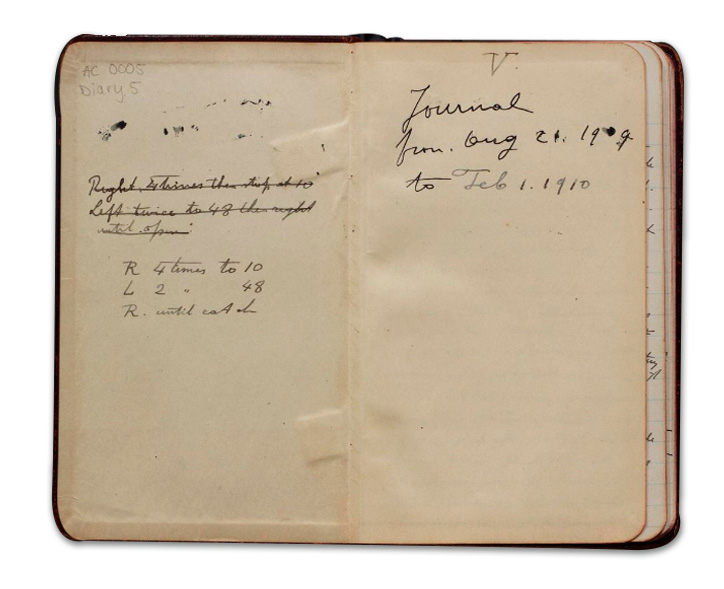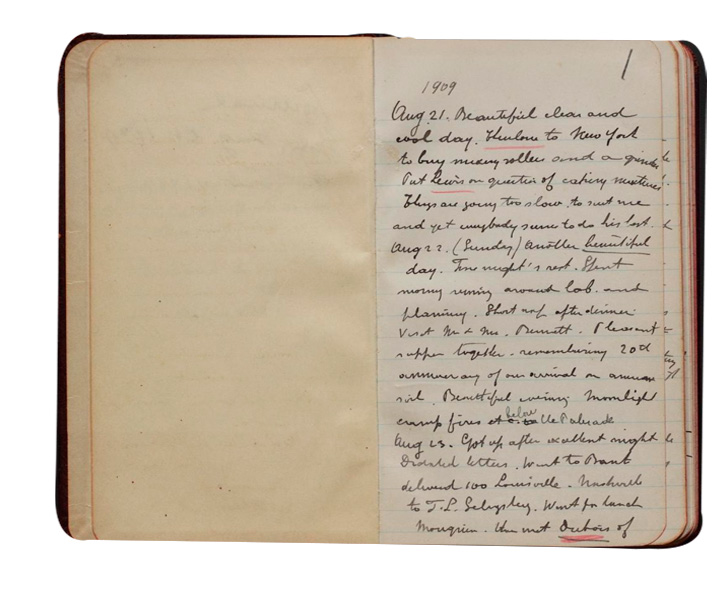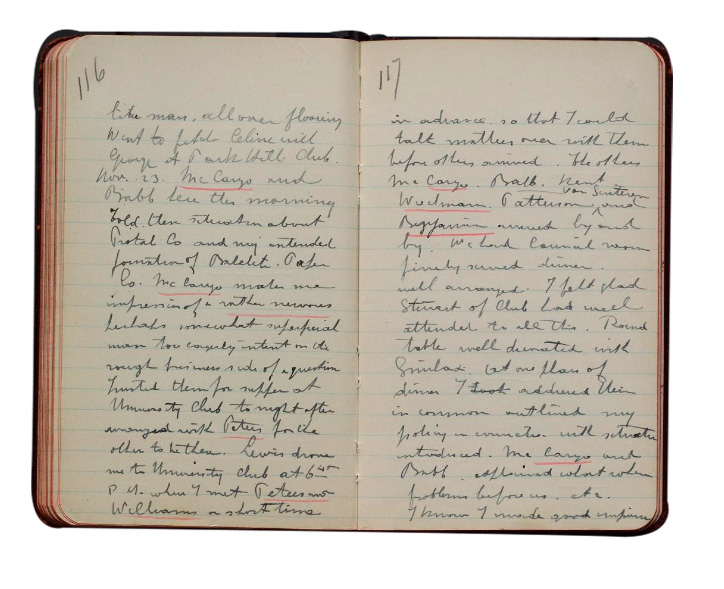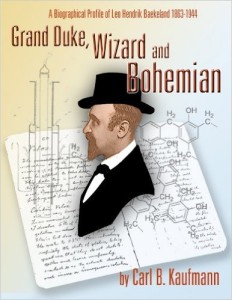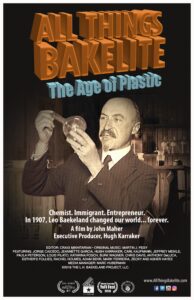Before they were given to the Smithsonian, Céline Karraker, a granddaughter of Leo Baekeland, read them and took meticulous notes intending to write a biography of her grandfather. Another reading of the diaries before they were given to the Smithsonian was by Carl Kaufmann, husband of Céline Karraker’s step sister, Ruth Wyman. Carl used the diaries to flesh out his master’s thesis, “Grand Duke, Wizard and Bohemian: A Biographical Profile of Leo H. Baekeland”, which is available as an ebook on Amazon.com.
“Bakelite” is first mentioned in Leo Baekeland’s diary in June 1907, amid comments about his other work and personal activities. But even at the point of discovery, he saw the broad importance and commercial value of what he had accomplished, as these diary entries indicate:
June 18-19-20-21: Spent all these days in my laboratory and found many interesting things. An exceedingly active period which allowed me to clear many mysterious things (sic) with which Thurlow has been struggling unsuccessfully since over a year. I expect(sic) these days very successful work which has put me on the track of several new and interesting products which may have a wide application as plastics and varnishes.
Have applied for a patent for a (material) which I shall call Bakalite [1]. Have found also a very practical solution for improving Novolak and make it practical as a varnish. All the work has been carried out while Thurlow was in Detroit…I am sure he will be surprised to hear about all I have accomplished in so short a time.
June 23: Spent all day busily in my laboratory research work on Bakalite and similar problems.
June 24: Same, very busy day. I think I have –established now the proper foundation for Bakalite, also for the wood hardening process which Thurlow worked so unsuccessfully, and at the same time I have found the means for considerably improving Novolak varnish. Poor sleep since several days.
The “proper foundation” was later elucidated by Baekeland in A-B-C form (It is quite possible that his choice of these letters was a private joke, in which he intended to teach his fellow chemists their ABC’s).
[1] The initial spelling was “Bakalite.” LHB changed it to “Bakelite” in 1908.
In 2015, with Hugh Karraker’s support, archivists at the NMAH organized a crowd sourcing campaign to digitize the diaries. Over the years, these efforts have continued with many other works in their collections. Volunteers spent long hours reading Leo’s handwritten diaries and transcribing them. They are now available in PDF format.Baekeland’s handwriting was challenging for the most seasoned transcriber. But the stories told are engrossing and edifying. Baekeland holds no punches and has opinions that will thrill and horrify. He shows great emotion talking about the playfulness of his colleagues at The Chemists’ Club, as well as the pain of watching his son go off to the Great War. Baekeland has an engaging outlook on everything from women smoking in public, to Belgians eating with their knives, to momentous world events, to flowering fruit trees in his garden.
Leo H. Baekeland Timeline
View Guide to the Leo H. Baekeland Papers, NMAH.AC.005 Smithsonian National Museum of American History, by Robert Harding 1994. The collection requires 15 cubic feet, 49 boxes. The papers document Leo H. Baekeland, a Belgian born chemist who invented Velox photographic paper (1893) and Bakelite (1907), an inexpensive, nonflammable, versatile plastic. The papers include student notebooks; private laboratory notebooks and journals; commercial laboratory notes; diaries; patents; technical papers; biographies; newspaper clippings; maps; graphs; blueprints; account books; batch books; formula books; order books; photographs; and correspondence regarding Baekeland, 1887-1943.
The collection also has available for loan the two DVD box set including the 59-minute and 21-minute educational versions of the documentary film, All Things Bakelite: The Age of Plastic.
Volunteer
Volunteers are encouraged to join the digitizing effort of many collected writings by going to the Smithsonian Transcription Services site.
